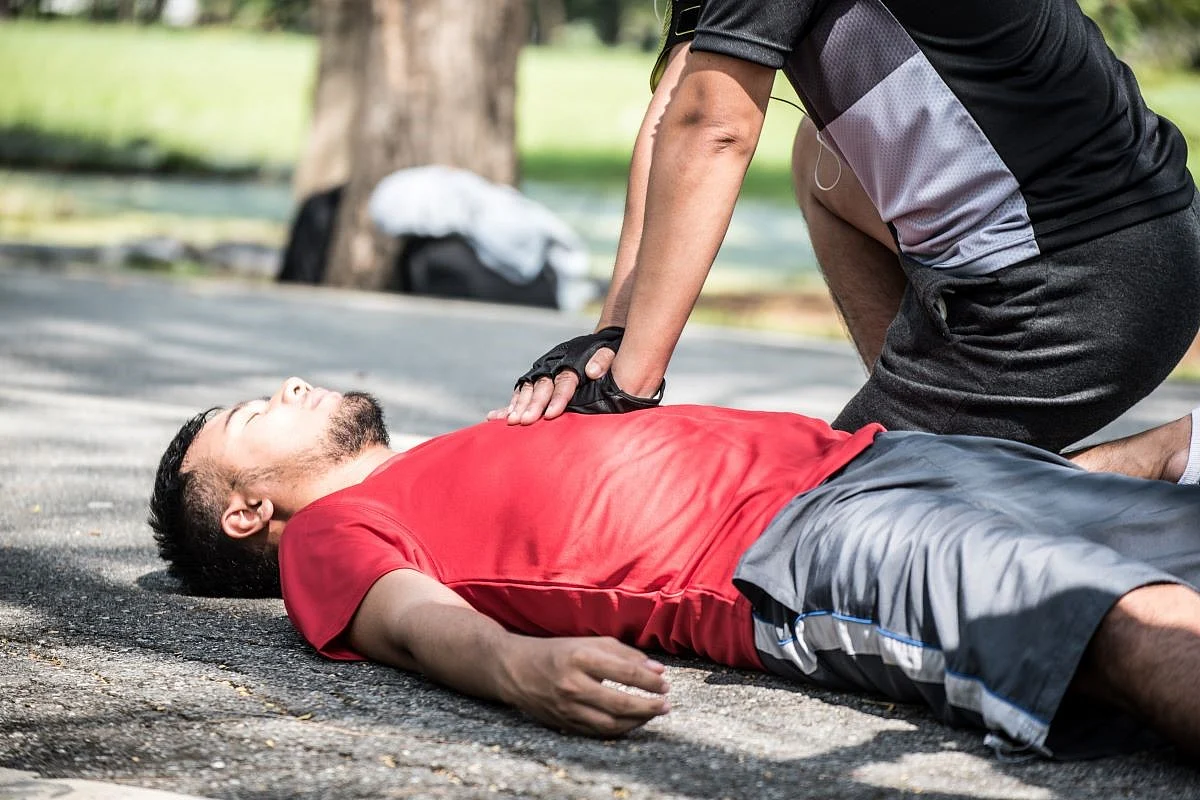Prevention of 'Tongue Swallowing' in Resuscitation of Athletes Associated With Poor Prognosis
By Elana Gotkine HealthDay Reporter
 via HealthDay
via HealthDayWEDNESDAY, July 30, 2025 -- Attempts to prevent "tongue swallowing" are common during bystander resuscitation of athletes with cardiac arrest and are associated with poor prognosis, according to a study published online July 30 in the Canadian Journal of Cardiology.
Dana Viskin, M.D., from the Tel Aviv Sourasky Medical Center in Israel, and colleagues searched the internet for videos showing athletes undergoing resuscitation maneuvers after collapsing during competition from 1990 to 2024, focusing on the first response. Forty-five cases of athletes collapsing during sporting events that were caught on video or published and publicly available were assessed.
The researchers found that an inappropriate response, including attempts to prevent tongue swallowing, preceded proper cardiopulmonary resuscitation (CPR) in 84 percent of cases when the first action was visible. Following cardiac arrest events, death or severe anoxic brain damage was more likely when the victims were subjected to tongue-swallowing prevention maneuvers versus receiving CPR as the first response (18 of 27 [67 percent] versus zero of three). Twenty-eight cases were covered in 84 news articles; 40 of these mentioned the term "tongue swallowing," which was generally praised.
"Our study highlights the dangerous and persistent misconception of 'tongue swallowing prevention,' which can delay the initiation of life-saving chest compressions," Viskin said in a statement. "These delays may cost lives, and yet the media often praise such misguided actions as heroic. We urgently need to reeducate the public and the media and reframe the narrative around CPR, especially in sports."
Disclaimer: Statistical data in medical articles provide general trends and do not pertain to individuals. Individual factors can vary greatly. Always seek personalized medical advice for individual healthcare decisions.
Source: HealthDay
Posted : 2025-07-31 06:00
Read more

Disclaimer
Every effort has been made to ensure that the information provided by Drugslib.com is accurate, up-to-date, and complete, but no guarantee is made to that effect. Drug information contained herein may be time sensitive. Drugslib.com information has been compiled for use by healthcare practitioners and consumers in the United States and therefore Drugslib.com does not warrant that uses outside of the United States are appropriate, unless specifically indicated otherwise. Drugslib.com's drug information does not endorse drugs, diagnose patients or recommend therapy. Drugslib.com's drug information is an informational resource designed to assist licensed healthcare practitioners in caring for their patients and/or to serve consumers viewing this service as a supplement to, and not a substitute for, the expertise, skill, knowledge and judgment of healthcare practitioners.
The absence of a warning for a given drug or drug combination in no way should be construed to indicate that the drug or drug combination is safe, effective or appropriate for any given patient. Drugslib.com does not assume any responsibility for any aspect of healthcare administered with the aid of information Drugslib.com provides. The information contained herein is not intended to cover all possible uses, directions, precautions, warnings, drug interactions, allergic reactions, or adverse effects. If you have questions about the drugs you are taking, check with your doctor, nurse or pharmacist.
Popular Keywords
- metformin obat apa
- alahan panjang
- glimepiride obat apa
- takikardia adalah
- erau ernie
- pradiabetes
- besar88
- atrofi adalah
- kutu anjing
- trakeostomi
- mayzent pi
- enbrel auto injector not working
- enbrel interactions
- lenvima life expectancy
- leqvio pi
- what is lenvima
- lenvima pi
- empagliflozin-linagliptin
- encourage foundation for enbrel
- qulipta drug interactions
